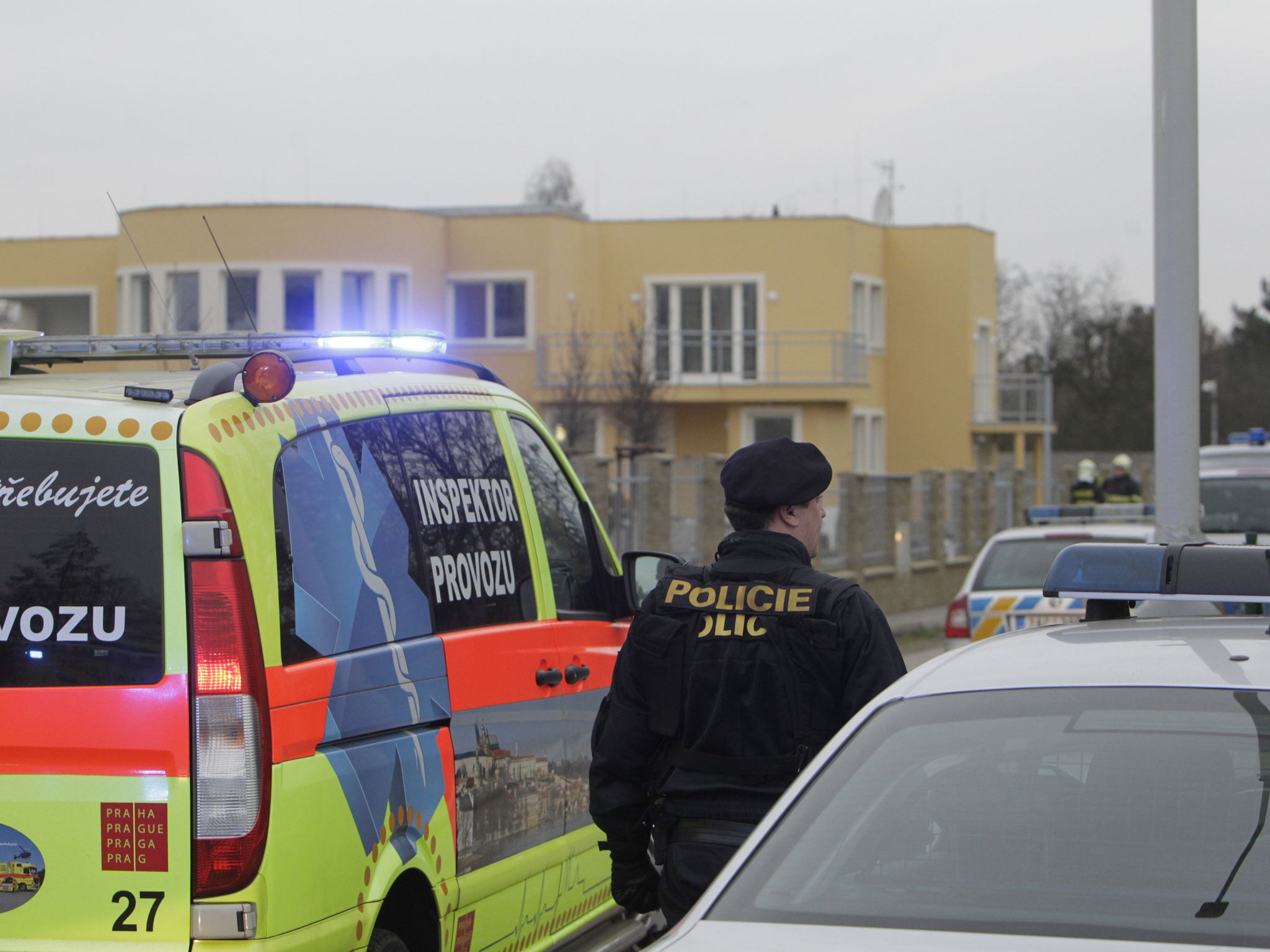Prague embassy explosion: Safe that blew up, killing Palestinian ambassador Jamal al-Jamal, didn't have anti-burglar booby-trap, say staff

Your support helps us to tell the story
From reproductive rights to climate change to Big Tech, The Independent is on the ground when the story is developing. Whether it's investigating the financials of Elon Musk's pro-Trump PAC or producing our latest documentary, 'The A Word', which shines a light on the American women fighting for reproductive rights, we know how important it is to parse out the facts from the messaging.
At such a critical moment in US history, we need reporters on the ground. Your donation allows us to keep sending journalists to speak to both sides of the story.
The Independent is trusted by Americans across the entire political spectrum. And unlike many other quality news outlets, we choose not to lock Americans out of our reporting and analysis with paywalls. We believe quality journalism should be available to everyone, paid for by those who can afford it.
Your support makes all the difference.The mystery surrounding a New Year’s Day blast that killed the Palestinian ambassador to Prague as he opened a safe at his residence deepened on Thursday as police confirmed they had found weapons at his embassy and staff denied reports that the safe had an explosive anti-burglar device, which had been mistakenly detonated.
The ambassador, 56-year-old Jamal al-Jamal, suffered injuries to his head, chest and stomach when opened a safe at his Prague residence on Wednesday. No one claimed responsibility for the blast. Police initially ruled out foul play and concluded that he had inadvertently detonated what they assumed was the safe’s in-built security system.
The diplomat was put in a medically induced coma on arrival at Prague’s military hospital but despite receiving emergency surgery doctors were unable to save him. “We do not have a single indication that this could be a terrorist attack,” Czech police president Martin Cervicek said after an initial investigation at the scene of the blast. On Thursday, however, police spokeswoman Andrea Zoulova confirmed that officers had discovered weapons inside the embassy building although she refused to disclose what sort they were.
The embassy appeared to directly contradict the police version of events when Nabil el Fahel, the embassy’s spokesman, said that according to his information the safe was not equipped with any explosive booby trap. “None of us knew there was any device like that,” he said. “The safe was being used almost daily for depositing money. It was used for salaries of embassy staff and for buying items for daily operations.”
Mr Fahel also appeared to refute claims by the Palestinian Foreign Minister Riyad al-Malki who said on Wednesday that the safe had not been opened in at least 20 years. He said it had recently been moved from an old embassy building to its present location, which seemed to link the safe to a former Palestine Liberation Organisation Mission in Prague in the 1980s.
The new evidence emerging on Thursday seemed likely to renew speculation that the blast was a deliberate and possibly politically motivated attack. Czech police said that they were trying to identify the type of explosive that caused the blast and that they wanted to know why such material was being kept in a safe at the ambassador’s residence. They said the investigation could take several days. Investigators said some safes can be fitted with small charges that are designed to destroy confidential documents held inside if any attempt is made to break open the lock. However, safe-security experts were quoted on Thursday as saying that it was highly unlikely such devices would generate a blast strong enough to kill a person.
Czech police said that they still had no evidence confirming that Jamal al-Jamal had been the victim of any crime. The Reuters news agency quoted the former Czech military intelligence chief, Andor Sandor, as saying that the information currently available indicated that the blast was either an accident or privately rather than politically motivated.
Palestinian officials were reported to have been in contact with the Czech authorities and a Palestinian delegation was on Thursday on its way to Prague to visit the scene.
In a statement Palestinian Foreign Minister al-Malki described Mr Jamal as a “successful diplomat who was diligent in serving his country and his cause”.
Mr Jamal had only taken up his post in October. The mission said his family had been in the process of moving in to the ambassador’s residence when the blast occurred.
Join our commenting forum
Join thought-provoking conversations, follow other Independent readers and see their replies
Comments